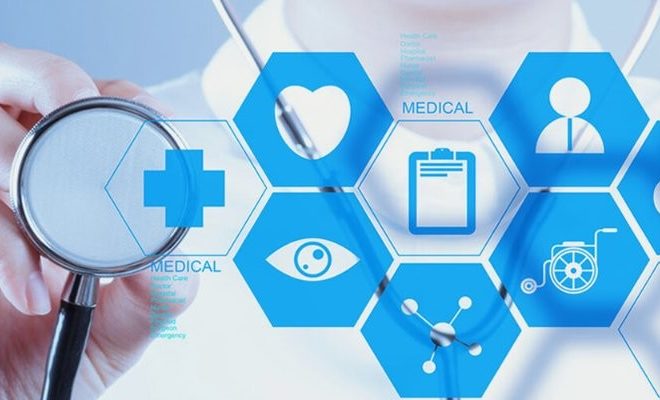Could 5G Have an Impact on Hospitals and Healthcare?
Across the world, 5G technology is giving a massive boost to digital transformation and revolutionizing industries. With the capacity to carry a massive number of connections at lightning-fast speed, 5G is poised to impact healthcare in a big way. It can allow for telemedicine, real-time monitoring, and also form the backbone of modern healthcare concepts such as robotic surgery and the Internet of Medical Things.
According to IHS Markit, by 2035, 5G will enable more than $1 trillion in products and services for the global healthcare sector.
Here are a few ways 5G can impact hospitals and healthcare:
Telemedicine
Getting experienced medical experts to where patients are located has always been a big challenge. According to the National Rural Health Association, the patient-to-PCP ratio in rural areas is only 8 physicians per 100,000 people.However, with 5G-enabled telemedicine, patients might no longer have to travel to the hospital when they need medical attention. Since telemedicine requires network speeds that can support real-time, high-quality audio as well as video, 5G can enable doctors to seamlessly handle telemedicine appointments, treat patients sooner, and provide access to specialists, who are otherwise not easily available.
Using 5G, doctors can speak to patients living in remote areas, carry out detailed diagnoses, make recommendations, and even provide prescriptions – without having to worry about congestion and slow network speeds. For healthcare providers dealing with dozens of patients each day, 5G can overcome the frustrating lag, and provide immediate patient care, which could boost healthcare outcomes in the long run.
File sharing
In any healthcare setting, sharing important health documents and reports between various departments is extremely critical for quick delivery of care. However, since X-Rays and MRIs and other imaging documents are typically very large files, sending them to specialists for review via online mediums is a challenging task. When the network is low on bandwidth, transmission can either take a long time, or even fail altogether. This means patients have to wait longer for treatment, which can have a major impact on their health.
High-speed 5G technology can enable hospital staff to quickly and reliably share huge patient files, improving both access to, and quality of care. Now instead of patients having to wait for hours after an MRI has been done, with 5G, as soon as the patient leaves the room, the scan is already on its way to the specialist. 5G can not only enable doctors to get the results they need quickly, it can also cut down on diagnosis time, and facilitate a more fulfilling experience for patients.
Remote monitoring
With connected healthcare devices witnessing a growing popularity, the realm of Internet of Medical Things or IoMT is expanding with each day. Thousands of healthcare providers across the world are using IoT devices to monitor vital stats and gather data that can be used to improve personalized and preventive care. But despite the benefits, remote monitoring faces several roadblocks due to the limited capacity of networks to handle data. Slow network speeds and unreliable internet connections could mean care providers fail to get the real-time data they need to make quick healthcare decisions.
But 5G technology can change all that. By offering lower latency and higher capacity, 5G can enable doctors to quickly and easily have access to real-time patient data. They can be confident that they will receive the data they need in real-time, and provide the care their patients need, and expect. 5G can also allow providers to easily access patients’ previous medical conditions, family history, and important conditions such as allergies, and drive faster decision-making, especially in critical or time-sensitive situations.
Real-time analysis
As AI and Machine Learning inundate the healthcare industry, rapid and accurate diagnoses has become common place. But for these systems to be reliable, they need to be fed with a large quantity of patient data, so they can provide accurate and unbiased outcomes. Transmission of large quantities of data requires a robust, high capacity network without which the AI systems might not perform to their full capacity.
5G can make it easier and faster for doctors to analyze real-time patient data and add value to patient care. Since it puts AI tools on the fastest network available, it allows systems to be trained and utilized in the most efficient manner possible. 5G can also help doctors in identifying the perfect diagnosis, speeding up drug development, and improving treatment schedules. Low latency and increased image quality and definition can allow doctors to make vital healthcare decisions in the quickest time possible and with the most accurate information available.
Guided surgery
That roboticshas immense potential in healthcare is known to all. The challenge is providing surgical robots with high computational power to process imagery from cameras and movement. Since robots require medical information in real-time to carry out timely and accurate surgery, the speed of information exchange is crucial. If they do not get access to the information they need, when they need it, it can lead to unfavorable circumstances, that can put patient life at risk.
5G technology can form the basis for robots that will be able to exploit the enormous data stored on the cloud and carry out tasks in the most accurate manner. It can enable zero-lag synchronized movements and pave the way for teams to collaborate on surgeries, much like in an operation theatre setting, but without actually being together in the same room. With latency as low as 0.1 second, 5G can offer high visual clarity and an instantaneous response rate – an essential requirement for surgery. Do you know? At Mobile World Congress this year, a doctor successfully guided a surgical team to perform a laparoscopic surgery in near real-time.
Improve care outcomes
When it comes to implementing new technologies, a complex regulatory landscape and embedded legacy systems have made the healthcare industry a slow mover.
However, once the industry successfully overcomes the hurdles, technological innovation holds the potential to transform care outcomes. The fifth generation of mobile internet connectivity is poised to deliver significant improvements in care quality and patient experiences — in addition to lower costs and higher operational efficiencies. The speed, bandwidth and device connectivity that 5G offers canallow providers to re-imagine how the industry approaches care. From telemedicine to file sharing, remote monitoring to real-time analysis to guided surgery – leveraging 5G can allow healthcare providers to detect changes, identify concerns, and provide high-quality care – quickly and more accurately than ever before.




